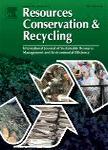版权所有:内蒙古大学图书馆 技术提供:维普资讯• 智图
内蒙古自治区呼和浩特市赛罕区大学西街235号 邮编: 010021

作者机构:Univ Fed Santa Catarina Grad Program Ind Engn Campus UFSC BR-88040900 Florianopolis SC Brazil
出 版 物:《RESOURCES CONSERVATION AND RECYCLING》 (资源、保护与重复利用)
年 卷 期:2019年第140卷
页 面:145-157页
核心收录:
学科分类:0830[工学-环境科学与工程(可授工学、理学、农学学位)] 08[工学]
主 题:Product-service systems Solar PV System Dynamics Modeling Bass Diffusion Model Diffusion theory
摘 要:The product-service system (PSS) model is a potential alternative for increasing the adoption of PV systems. The California Solar Initiative (CSI) incentive program aiming to expand the Solar PV installed base in California, included the PSS option. Little is known, however, about the contribution of the PSS model on the CSI program and if the CSI program acted as a catalyzer of long-term positive/secondary effects. In this sense, the aim of this paper is to twofold, first, to assess the contribution of the PSS model on the CSI program and second, to investigate if the CSI program generated long-term network externalities. A system dynamics model was built in order to visualize i) the influence of the PSS model on the CSI and ii) the long-term effects, i.e. network externalities of the CSI program. The results suggest, the PSS model led to a significant increase in the installed base of the program and in turn, the program led to positive network externalities.